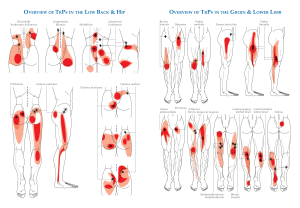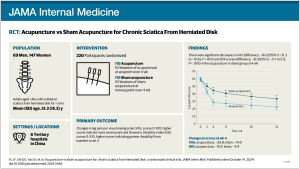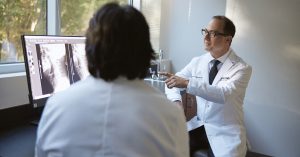Can Herniated Disc Heal Without Surgery?

One of the most common causes of back pain is a herniated disc.
The spinal bones are cushioned by discs, which allow for movement and flexibility. A disc herniation occurs when a spinal disc’s soft, gel-like center pushes through a crack in its tough exterior. This can irritate nearby nerves, leading to:
- Localized pain
- Numbness
- Weakness
- Radiating pain, often described as burning or sharp
Can a Herniated Disc Heal Without Surgery?
In many instances, yes.
With time, the herniated disc may slowly reduce in size and stop pressing into the nerves. After the pressure has decreased, you will begin to feel better.
Different treatments have been found helpful in healing the condition, with rest and time being among them.
A Short Period of Rest
Take a short resting period to get relief from inflammation and pain. However, extended bed rest is not advisable since it can cause muscle weakness and worsen symptoms.
To return to physical activity, gradually increase your range of motion and activity level and refrain from movements aggravating your pain.
Physical Exercise and Physical Therapy
Exercise and physical therapy can strengthen our core muscles, resulting in a healthier back and less spinal disc pain. Stretching exercises can improve and promote good posture. Learning how to properly lift and bend can also help prevent further damage.
Hot and Cold Therapies
Applying ice packs to the affected area will help decrease swelling and relieve local pain. Heating pads or warm baths can also relax tense muscles, improving blood flow.
Taking Medicine
Over-the-counter medications such as ibuprofen or naproxen can reduce pain and inflammation. Your doctor may also prescribe muscle relaxants or medicines to control nerve pain to provide additional relief.
Recognizing Symptoms that Require Immediate Medical Care
While most herniated discs can be managed with non-surgical treatments, certain red-flag symptoms indicate a worsening condition that requires immediate medical attention:
- Severe pain. Pain that doesn’t improve with rest or medication or continues to get worse.
- Numbness or weakness. Experiencing a lack of feeling or progressive weakness in your legs or arms.
- Difficulty moving. Trouble walking or maintaining balance.
- Loss of bladder or bowel control. These symptoms could indicate cauda equina syndrome, a serious medical condition that occurs when the bundle of nerves at the lower end of the spinal cord is compressed. It is a surgical emergency, and immediate action is needed to prevent permanent nerve damage.
Recognizing these serious symptoms and seeking treatment right away can help prevent long-term complications.
Promoting Healing and Preventing Damage
Although the healing time for a herniated disc varies, many people experience significant improvement within a few weeks to a few months with non-surgical treatments. During this time, some practical ways you can help heal and keep your herniated disc from getting worse include:
- Practice good posture when sitting, standing, or lifting
- Focus on exercises that strengthen your core muscles
- Drink plenty of water
- Take frequent breaks if you sit for long periods
- Maintain a healthy weight
- Quit smoking
- Choose supportive and cushioned footwear
Get Treatment for a Herniated Disc
If you have questions or your disc pain is worsening, make an appointment today with one of our specialists to discuss your treatment options. While surgery is not the first defense, it may be necessary.
Stop wondering, “Can a herniated disc heal without surgery.” with an expert today!
Related:




